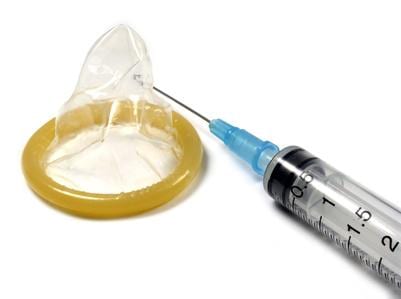Hormonal birth control is a convenient way to prevent unwanted pregnancy, but it may continue to work long after you’ve stopped using it. This can cause problems conceiving when you are finally ready to have a baby. Fortunately, the effects don’t last long in most women, and you should be able to conceive down the line.
Types
Women can now choose from several types of hormonal birth control. One of the most common is the birth control pill, which is a small pill you must take at the same time every day. Typically, a pack of birth control pills has three weeks of active pills and one week of inactive pills. The birth control patch is similar, but it transmits hormones transdermally. You replace the patch every week for three weeks, then have a one week break. Lunelle and Depo-Provera are hormonal birth control methods that you receive by injection. A vaginal ring is a ring that you place inside your vagina that releases hormones. You can also opt for an intrauterine device, or IUD, which your doctor places inside your uterus to prevent pregnancy.
Effects
All forms of hormonal birth control add the hormones estrogen or progesterone to your body to change your chances of pregnancy. Some prevent ovulation, while others make your body inhospitable to sperm or an embryo. These hormones can remain in your body after you’ve stopped using the method, which can continue to inhibit your chances of pregnancy.
Time Frame
Some women will be able to resume a normal ovulation cycle almost immediately after they stop taking the birth control pill. Most women, however, will resume their cycle within three months. Note, though, that some methods are meant to last longer than one month. For example, the Depo-Provera shot lasts three months, so if it’s only been one month since your shot, you will need to wait two more months before you even have a chance of getting your cycle back. Talk to your doctor if it seems to be taking longer than three months to get back to a normal cycle.
Considerations
Hormonal birth control uses hormones to simulate ovulation. In some cases, this gives you a period every month. In other cases, you may not have a period at all. The Parenting website reports that this could mask real fertility problems, such as polycystic ovarian syndrome. You may not learn you have fertility problems until you have trouble conceiving after you stop the birth control.
Warning
Hormonal birth control does not prevent sexually transmitted diseases. Some STDs can cause damage to your reproductive organs, especially the uterus and fallopian. Additionally, IUDs can cause pelvic inflammatory disease, which can also scar the fallopian tubes or uterus.
Photo Credit
- condom and syringe image by NatUlrich from Fotolia.com





